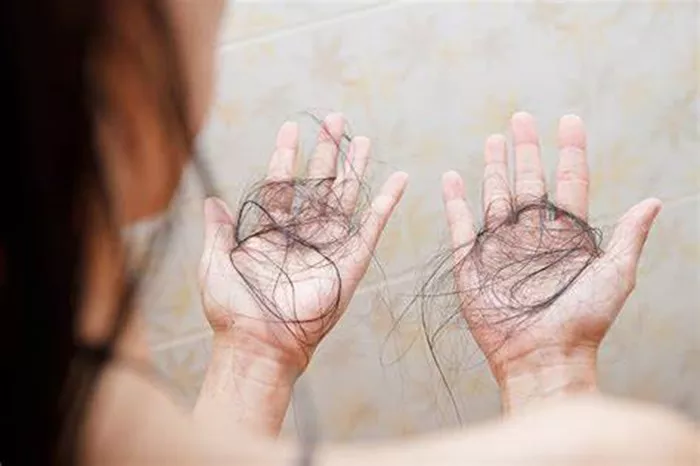Hair loss is a common concern that affects millions of people worldwide, leading to significant emotional and psychological distress. While genetics, hormonal imbalances, and nutritional deficiencies are well-known contributors, the role of nerves and the nervous system in hair loss is often overlooked. Emerging research suggests that nerve dysfunction, chronic stress, and neurological conditions can indeed influence hair health, leading to thinning, shedding, or even permanent hair loss. Understanding this connection is crucial for both patients and healthcare providers to develop effective treatment strategies.
The Nervous System and Hair Follicle Interaction
To comprehend how nerves can contribute to hair loss, it’s essential to first understand the relationship between the nervous system and hair follicles. Hair follicles are complex mini-organs embedded in the skin, and they are richly innervated by sensory and autonomic nerve fibers. These nerves play a critical role in regulating hair growth cycles, blood flow, and even the release of key signaling molecules.
The hair growth cycle consists of three main phases:
- Anagen (growth phase): The active period where hair grows.
- Catagen (transition phase): A short phase where growth stops, and the follicle shrinks.
- Telogen (resting phase): The hair falls out, and the follicle remains dormant before re-entering the growth phase.
Nerve fibers surrounding hair follicles release neurotransmitters and neuropeptides that influence these phases. For example, substance P (a neuropeptide involved in pain signaling) and calcitonin gene-related peptide (CGRP) have been found to modulate hair follicle activity. When nerve signaling is disrupted—whether due to stress, injury, or neurological disorders—it can push hair follicles into the telogen phase prematurely, leading to excessive shedding.
Stress, Anxiety, and Hair Loss
One of the most well-documented ways nerves contribute to hair loss is through psychological stress. Chronic stress triggers the release of cortisol and adrenaline, hormones that prepare the body for a “fight or flight” response. While this mechanism is essential for survival, prolonged stress can wreak havoc on hair health.
How Stress Affects Hair Growth
- Telogen Effluvium: A common type of stress-induced hair loss where a large number of hair follicles prematurely enter the telogen phase, leading to diffuse shedding.
- Alopecia Areata: An autoimmune condition where stress may trigger the immune system to attack hair follicles, resulting in patchy hair loss.
- Trichotillomania: A compulsive disorder where individuals pull out their hair, often due to anxiety or nervous tension.
The exact mechanism involves the hypothalamic-pituitary-adrenal (HPA) axis, which regulates stress responses. Overactivation of this axis can disrupt normal hair cycling, leading to thinning and shedding. Additionally, stress-induced inflammation may damage hair follicles, further exacerbating hair loss.
Nerve Damage and Hair Loss
Beyond psychological stress, physical nerve damage can also contribute to hair loss. Conditions such as neuropathy, spinal cord injuries, or surgical trauma can impair nerve function in the scalp, leading to reduced blood flow and nutrient delivery to hair follicles.
Peripheral Neuropathy and Scalp Health
Peripheral neuropathy, often caused by diabetes, chemotherapy, or autoimmune diseases, can lead to sensory loss in the scalp. Since nerve signals help maintain proper blood circulation, impaired nerve function may result in poor oxygenation and nutrient supply to hair follicles, weakening them over time.
Post-Surgical Hair Loss
Surgeries involving nerve damage, particularly those near the scalp or spine, can sometimes lead to localized hair loss. This occurs due to disrupted nerve signaling that normally supports hair follicle health.
Neurological Disorders Linked to Hair Loss
Certain neurological conditions have been associated with hair loss, further highlighting the connection between nerves and hair health.
Trigeminal Neuralgia and Scalp Sensitivity
Trigeminal neuralgia, a chronic pain condition affecting the trigeminal nerve, can lead to scalp hypersensitivity. The constant pain and inflammation may indirectly contribute to hair thinning due to reduced blood flow and increased stress on hair follicles.
Parkinson’s Disease and Hair Changes
Patients with Parkinson’s disease often experience changes in hair texture and density. While the exact cause is unclear, it may be related to dopamine dysregulation, which plays a role in both nerve function and hair growth.
Treatment Approaches for Nerve-Related Hair Loss
Addressing nerve-related hair loss requires a multifaceted approach that targets both the underlying neurological issues and hair regrowth.
Stress Management Techniques
- Mindfulness and Meditation: Helps reduce cortisol levels and improve overall nerve function.
- Cognitive Behavioral Therapy (CBT): Effective for stress-induced hair loss conditions like trichotillomania.
- Regular Exercise: Enhances blood circulation and reduces stress hormones.
Medical Interventions
- Topical Minoxidil: Stimulates hair follicles and prolongs the anagen phase.
- Low-Level Laser Therapy (LLLT): Improves blood flow and nerve activity in the scalp.
- Neuropathic Pain Medications: For conditions like trigeminal neuralgia, managing nerve pain may indirectly improve hair health.
Nutritional Support
- B Vitamins (especially B12 and Biotin): Essential for nerve function and hair growth.
- Omega-3 Fatty Acids: Reduce inflammation and support nerve health.
- Antioxidants (Vitamin E, Zinc): Protect hair follicles from oxidative stress.
Conclusion
The relationship between nerves and hair loss is complex but increasingly supported by scientific evidence. From chronic stress and nerve damage to neurological disorders, disruptions in nerve signaling can significantly impact hair growth cycles. Recognizing these connections allows for more comprehensive treatment strategies that address both the neurological and dermatological aspects of hair loss. If you’re experiencing unexplained hair thinning or shedding, consulting a healthcare provider to explore potential nerve-related causes could be a crucial step toward effective management and recovery.
By understanding and addressing the role of nerves in hair health, patients and doctors can work together to develop personalized treatments that not only restore hair but also improve overall well-being.
Related Topics:
- Is There Any Way to Prevent Hair Loss?
- Will Iron Help My Hair Grow Back? A Comprehensive Guide
- Is a Steam Straightener Bad for Your Hair?


